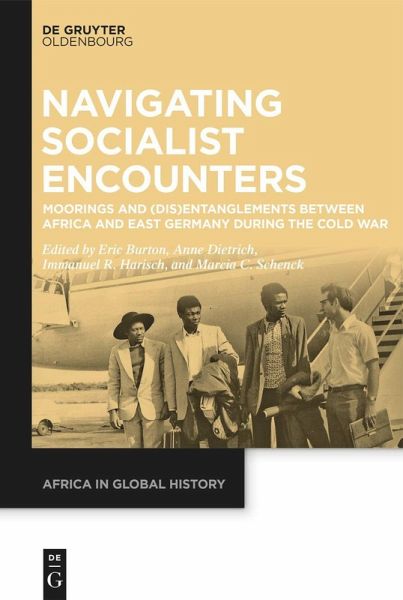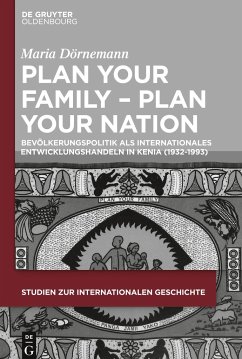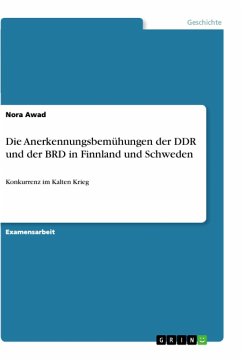
Navigating Socialist Encounters
Moorings and (Dis)Entanglements between Africa and East Germany during the Cold War
Herausgegeben: Burton, Eric; Dietrich, Anne; Harisch, Immanuel; Schenck, Marcia
Versandkostenfrei!
Versandfertig in 6-10 Tagen
19,99 €
inkl. MwSt.

PAYBACK Punkte
10 °P sammeln!
This edited volume examines entanglements and disentanglements between Africa and East Germany during and after the Cold War from a global history perspective. Extending the view beyond political elites, it asks for the negotiated and plural character of socialism in these encounters and sheds light on migration, media, development, and solidarity through personal and institutional agency. With its distinctive focus on moorings and unmoorings, the volume shows how the encounters, albeit often brief, significantly influenced both African and East German histories.














